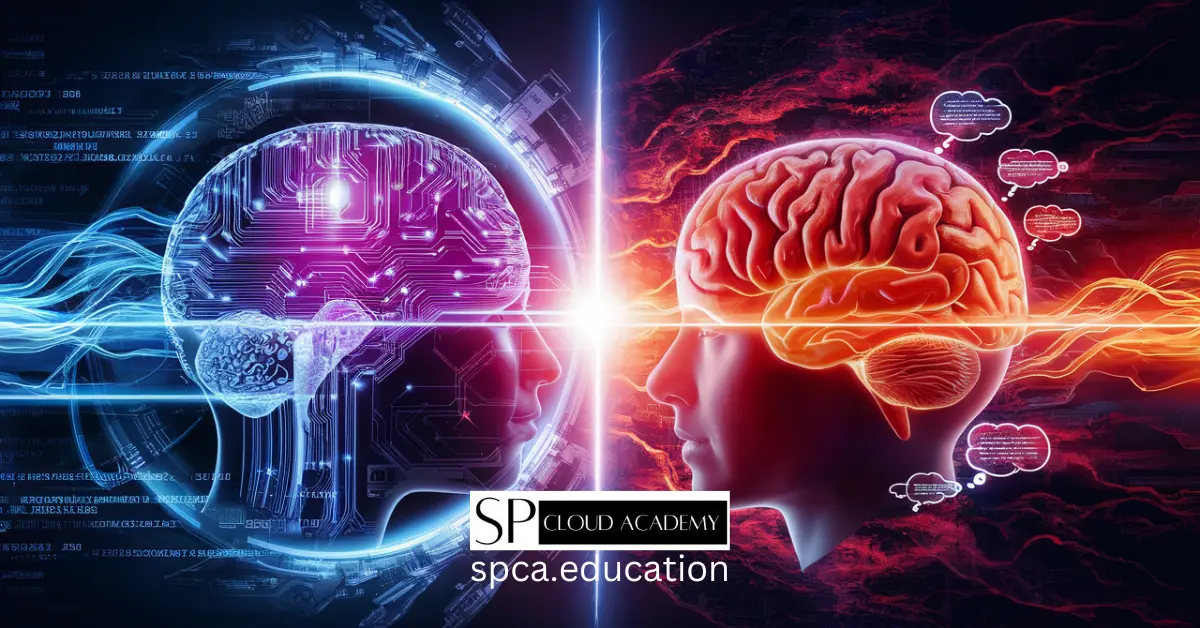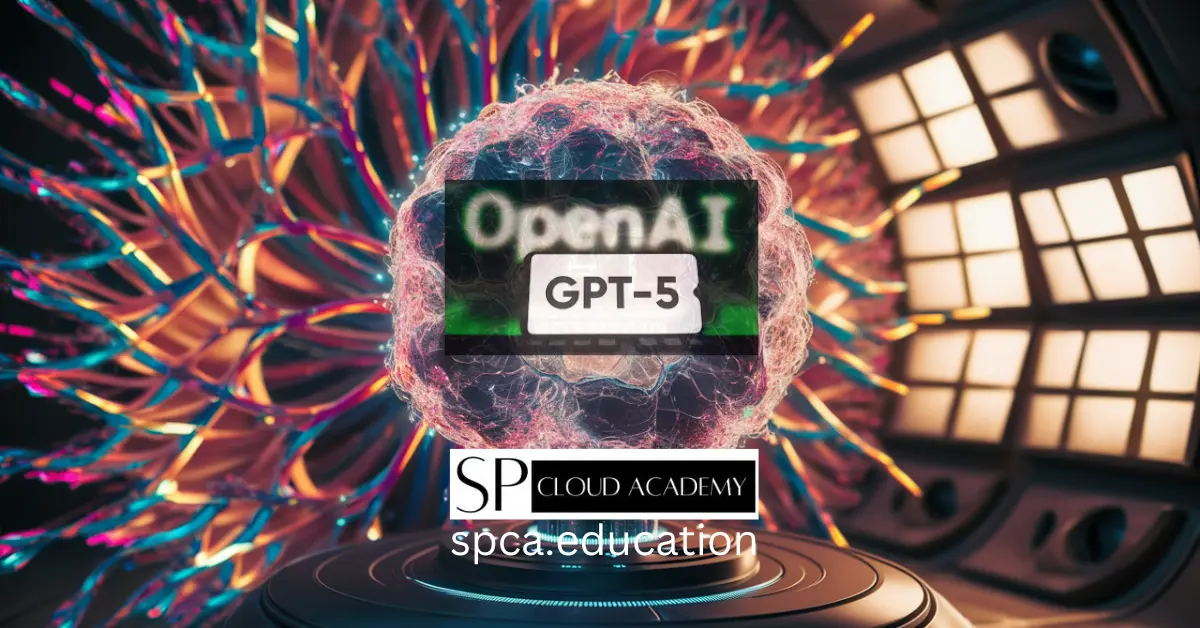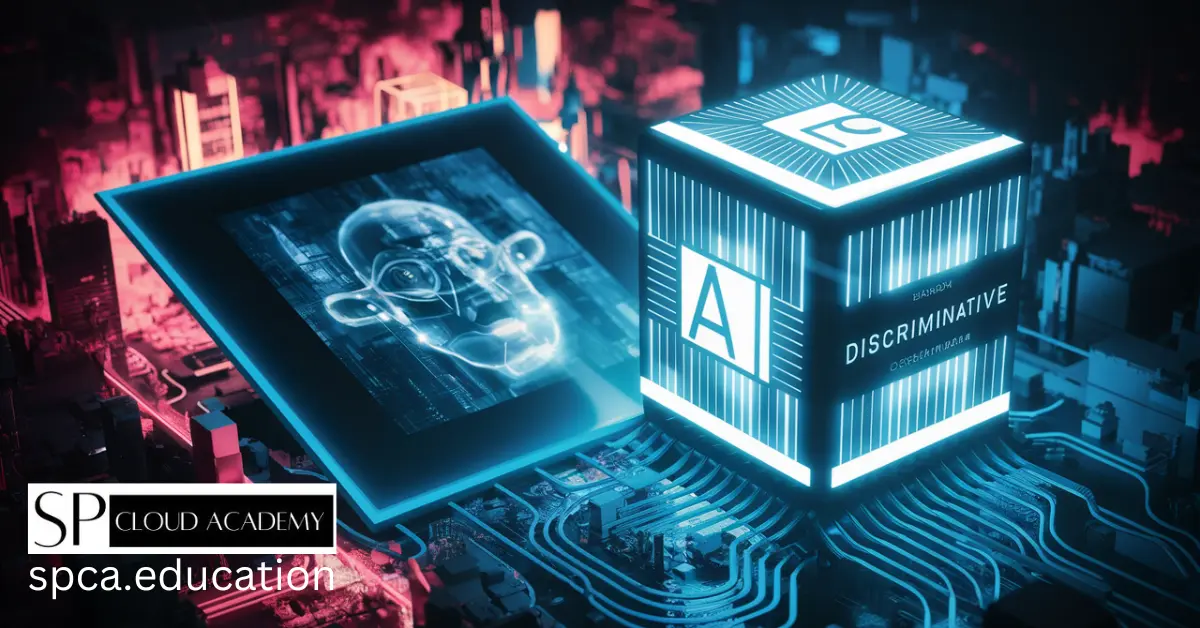The cursor blinks on a blank screen, a silent taunt to the writer staring back. For decades, this has been the starting point for every blogger, a challenge to fill the void with stories, insights, and value. But a new player has entered the arena, one that never faces a blank screen with dread. Artificial Intelligence, with its ability to generate thousands of words in seconds, is here.
This has sparked a monumental debate in the digital world: Blogging vs. AI. Is the heartfelt, human-crafted blog post a relic of a bygone era? Or is AI just a sophisticated tool, a powerful assistant but ultimately lacking the soul of a true creator? This isn’t just a question of technology; it’s a question about the future of information, connection, and creativity on the internet.
This article will dissect this fascinating conflict and collaboration. We’ll explore the irreplaceable strengths of human bloggers, the undeniable power of AI content generators, and how search engines like Google are adapting to this new landscape. We won’t just declare a winner; we will uncover the path forward for content creators who want to thrive in an AI-powered world. The future isn’t about choosing a side; it’s about understanding the new rules of the game.
The Enduring Power of the Human Blogger
Before we dive into the capabilities of AI, it’s crucial to remember what makes human-led blogging so powerful. For over two decades, blogs have been the digital equivalent of a town square, a place for sharing ideas, building communities, and establishing trust. This power doesn’t come from algorithms or data processing; it comes from the core of the human experience.
The human blogger is more than a content producer; they are a brand, a personality, and a trusted guide. They bleed, they triumph, they learn, and they share those messy, imperfect journeys with an audience that relates to them. This connection is the bedrock of a successful blog, and it’s a currency that AI, in its current form, struggles to mint.
The Heart of the Matter: Authenticity and Personal Connection
At its core, blogging is about connection. A reader doesn’t just subscribe to a blog for information; they subscribe to a person. They follow the travel blogger who shares a hilarious story about getting lost in Tokyo, the finance expert who vulnerably admits to their own past money mistakes, or the parent blogger who captures the chaotic beauty of family life.
This is the power of authenticity. AI can simulate empathy, but it cannot feel it. It hasn’t experienced the frustration of a failed recipe or the elation of reaching a personal goal. Human writers draw from a deep well of lived experiences, infusing their content with genuine emotion, unique perspectives, and relatable anecdotes. This creates a bond of trust with the reader. When you read a post from a human, you feel like you’re getting advice from a friend, not a machine processing a prompt. This authentic connection fosters loyalty that is incredibly difficult for purely AI-generated content to replicate.
Storytelling, Nuance, and Cultural Context
Humans are natural-born storytellers. We use narrative to make sense of the world, to teach, and to entertain. A skilled blogger can weave a compelling story around a dry topic, making it memorable and engaging. They understand the power of a well-timed joke, the impact of a poignant metaphor, or the subtle use of sarcasm.
Furthermore, human writers possess an innate understanding of cultural nuance and context. They know which references will resonate with their specific audience, what humor will land, and what topics are sensitive. AI, trained on vast but general datasets, can often miss these subtleties. It might produce grammatically perfect text, but it can feel sterile or, worse, culturally tone-deaf. The ability to read the room, even a digital one, is a uniquely human skill that elevates good content to great content.
Building a Genuine Community and Trust
A blog is not a monologue; it’s a dialogue. The most successful bloggers build vibrant communities around their content. They engage with comments, respond to emails, and participate in discussions on social media. They listen to their audience’s problems and create content that directly addresses their needs. This two-way interaction builds a powerful feedback loop and a sense of belonging.
This community-building effort is rooted in genuine interest and empathy. An AI can be programmed to generate generic replies, but it cannot foster the kind of trust that comes from a real person taking the time to understand and connect with their readers. Trust is the ultimate goal of content marketing, and it’s earned through consistency, expertise, and, most importantly, a demonstrable human presence that cares about its audience.
The Rise of the AI Content Machine
While the human touch remains invaluable, ignoring the meteoric rise of AI in content creation would be a colossal mistake. AI writing tools are no longer clunky novelties; they are sophisticated, powerful engines capable of producing coherent, well-researched, and SEO-friendly text on an unprecedented scale.
The allure of AI is rooted in its solutions to the most common pain points for bloggers and businesses: time constraints, writer’s block, and the demand for a constant stream of content. For many, AI is not a threat but a revolutionary tool that unlocks new levels of productivity and efficiency.
Unstoppable Speed, Scale, and Efficiency
The single greatest advantage of AI is its staggering speed. A human writer might spend hours, or even days, researching, outlining, writing, and editing a 2000-word article. An AI can generate a comparable first draft in a matter of minutes. This efficiency is a game-changer for businesses and content teams needing to produce content at scale.
Imagine needing to create product descriptions for a hundred new items, generate 50 social media posts for the week, or draft a series of informational articles for a new service launch. What would take a human team weeks can be accomplished with AI in a fraction of the time. This scalability allows creators to focus their energy on higher-level strategy, promotion, and creative ideation, rather than getting bogged down in the sheer volume of writing required to stay competitive.
Data-Driven Content and SEO Optimization
Modern AI writing tools are often built with SEO in mind. They can analyze top-ranking articles for a specific keyword and identify common themes, heading structures, and related terms (LSI keywords) that should be included. They can generate meta descriptions, title tags, and structured data that appeal to search engine algorithms.
This data-driven approach removes much of the guesswork from SEO. An AI can quickly process vast amounts of information to determine what kind of content is most likely to rank well. While it doesn’t replace the need for strategic SEO knowledge, it provides a powerful starting point, ensuring that the content is structured for search visibility from the very beginning. This is a massive advantage for those looking to improve their organic search performance efficiently.
Overcoming Writer’s Block and Generating Ideas
Every writer has faced the terror of the blank page. AI serves as a powerful antidote to writer’s block. By simply entering a topic or a few keywords, a writer can receive a fully fleshed-out outline, a list of potential subheadings, or several opening paragraph options. This can be the spark needed to get the creative juices flowing.
Beyond just breaking through blocks, AI is an incredible ideation engine. It can brainstorm blog post titles, suggest unique angles for a common topic, or generate a list of questions that a target audience might have. This allows bloggers to spend less time wondering what to write about and more time refining the ideas that have the most potential, adding their unique voice and expertise to a solid, AI-generated foundation.
Blogging vs. AI: A Side-by-Side Analysis
So, where do the two truly differ? Pitting the human blogger against the AI writer in a direct comparison reveals a fascinating landscape of complementary strengths and distinct weaknesses. This isn’t about finding a definitive winner, but about understanding the right tool for the right job.
Creativity and Originality: The Human Edge
While AI can synthesize existing information with incredible skill, it struggles with true originality. Its creativity is recombinatory; it rearranges and rephrases what it has learned from its training data. A human writer, on the other hand, can create something genuinely new. They can connect seemingly disparate ideas, invent novel analogies, and share first-hand experiences that have never been documented online. True thought leadership—the kind that introduces a brand new framework or a paradigm-shifting perspective—is, for now, a distinctly human domain.
Speed and Volume: The AI Advantage
This is not a contest. In a race to produce sheer volume, AI wins, and it’s not even close. The ability to generate thousands of words of structured, relevant content in minutes is a superpower. For content that is informational, formulaic, or needs to be produced at scale (like news summaries, basic explainers, or e-commerce descriptions), AI is an unparalleled tool for productivity. A human simply cannot compete on raw output.
SEO and Keyword Optimization: A Shared Battlefield
This area is becoming increasingly collaborative. AI is excellent at the science of SEO—identifying keywords, structuring content with H1s and H2s, and ensuring topical relevance based on data from top-ranking pages. However, a human SEO expert provides the art. They understand user intent on a deeper level, know how to craft a truly compelling, click-worthy title, and can build a content strategy that aligns with a broader business goal. The best SEO results are often achieved when a human strategist guides an AI’s execution.
Factual Accuracy and Research: A Double-Edged Sword
AI can access and synthesize information from a vast portion of the internet in seconds, making it a phenomenal research assistant. However, it also suffers from a critical flaw: “hallucinations.” AI can confidently state incorrect facts or even invent sources. Human researchers, while slower, can critically evaluate sources, cross-reference information, and verify claims. The responsibility for factual accuracy will always fall on the human editor. Using AI for research requires a rigorous fact-checking process, making it a powerful but potentially dangerous tool if used without oversight.
Google’s Stance: It’s All About Quality and Helpfulness
The elephant in the room for any content creator is Google. How does the world’s largest search engine view the flood of AI-generated content? For a while, the SEO community buzzed with fear that Google would penalize AI content. However, Google’s official stance has become refreshingly clear.
In their guidance, Google has stated that they are not against AI-generated content; they are against low-quality content, regardless of how it’s created. Their focus is on rewarding content that is helpful, reliable, and people-first. The method of production is irrelevant if the final product meets the user’s needs.
This is where their E-E-A-T guidelines (Experience, Expertise, Authoritativeness, and Trustworthiness) become paramount. AI can simulate Expertise and Authoritativeness by summarizing expert sources. But “Experience” is the new frontier. Google wants to rank content that demonstrates real, first-hand knowledge. An AI cannot test a product, visit a destination, or offer a personal case study. This is where the human blogger has a massive, defensible advantage. Content that showcases genuine, lived experience is not only more valuable to the reader but is also being increasingly favored by search algorithms.
The Hybrid Future: The Rise of the AI-Assisted Blogger
The “Blogging vs. AI” debate frames the issue as a zero-sum game. The reality is far more nuanced and exciting. The future doesn’t belong to the human blogger who shuns technology, nor does it belong to the fully automated AI content farm. It belongs to the AI-assisted blogger, the creator who masterfully wields AI as a tool to amplify their uniquely human strengths.
This collaborative approach transforms AI from a competitor into the most powerful assistant a writer has ever had. It’s about automating the tedious parts of content creation to free up more time for the parts that truly matter: creativity, strategy, and community building.
Here’s how this powerful synergy works in practice:
- AI as the Research Assistant: Instead of spending hours sifting through search results, a blogger can ask an AI to summarize the key points from the top 10 articles on a topic, identify common statistics, or list expert quotes.
- AI as the Outline Generator: Stuck on how to structure a complex topic? A simple prompt can generate a logical, comprehensive outline with H2s and H3s, providing a solid skeleton for the article.
- AI as the First-Draft Writer: For informational sections of a post, a blogger can have AI write the initial draft. The blogger then comes in to edit, inject their personal voice, add stories, and fact-check the content.
- AI as the Editor and Rephrasing Tool: AI tools can instantly check for grammar and spelling, suggest better phrasings, adjust the tone of a paragraph, or shorten sentences for better readability.
By embracing this hybrid model, bloggers can produce higher-quality content faster than ever before, combining the scale and efficiency of AI with the authenticity and creativity of the human mind.
How to Thrive, Not Just Survive: A Blogger’s Guide to the Future
If you’re a blogger feeling anxious about the rise of AI, take a deep breath. This is not an extinction-level event; it’s an evolution. The key is to adapt your strategy to lean into your human advantages while leveraging AI’s strengths.
1. Double Down on Your Niche and Personal Brand:
Generic, “top 10 list” style content is what AI does best. To stand out, go deeper into your niche. Become the go-to expert. More importantly, build your personal brand. Share your story, your opinions, and your unique perspective. People follow people, not faceless content machines.
2. Focus on First-Hand Experience (E-E-A-T):
Document your real-world experiences. Write detailed case studies, honest product reviews where you’ve actually used the product, and personal journey-style posts. This is the “Experience” in Google’s E-E-A-T, and it’s your most powerful moat against AI.
3. Master the Art of Prompt Engineering:
Learning to communicate effectively with AI is the new essential skill. “Prompt engineering” is the practice of crafting detailed, specific instructions to get the best possible output from an AI model. The better your prompts, the better your AI assistant will be.
4. Use AI for Automation, Not Creation:
Let AI handle the grunt work. Use it to brainstorm titles, create outlines, summarize research, and write drafts for generic sections. Then, dedicate your saved time to what AI can’t do: infusing the content with personality, adding unique insights, and engaging with your community. Your job is to be the creative director, not the assembly line worker.
Conclusion: Who Owns the Future? We All Do.
So, who wins in the battle of Blogging vs. AI? The answer is clear: the reader.
The future of online content is one of higher standards and greater expectations. Low-effort, generic content, whether written by a human or an AI, will be drowned out. The content that rises to the top will be that which is truly helpful, deeply authentic, and expertly crafted.
AI is not the death of blogging; it is the death of mediocre blogging. It’s a tool of immense power, and like any tool, its impact depends on the person who wields it. The future of online content doesn’t belong to the human blogger who refuses to adapt, nor does it belong to the soulless AI.
It belongs to the creator who understands that their voice, their experiences, and their connection with their audience are their greatest assets. It belongs to the innovator who learns to partner with artificial intelligence, using it to handle the science of content creation so they can master the art. The future is human-led, but AI-powered. And for those willing to embrace it, the future has never been brighter.
Frequently Asked Questions (FAQ)
Q1: Will AI replace bloggers completely?
No, it is highly unlikely that AI will completely replace bloggers. AI will replace repetitive, low-value content creation tasks. It will raise the bar for quality, forcing bloggers to focus on what makes them unique: personal experience, deep expertise, storytelling, and community building. Bloggers who adapt and use AI as a tool will thrive.
Q2: Is AI-generated content good for SEO?
Google’s official stance is that high-quality content is good for SEO, regardless of how it’s produced. If AI is used to create helpful, accurate, people-first content that satisfies user intent and demonstrates E-E-A-T, it can be excellent for SEO. However, using AI to mass-produce low-quality, spammy content will likely harm your rankings.
Q3: What are the best AI writing tools for bloggers?
The landscape is constantly changing, but some of the most popular and powerful tools currently include OpenAI’s ChatGPT (specifically GPT-4), Jasper (formerly Jarvis), Copy.ai, and SurferSEO’s content editor. Many of these tools offer different strengths, from long-form content generation to SEO-focused writing assistance.
Q4: How can I make my blog stand out against a sea of AI content?
Focus on your “un-automatable” skills. Develop a strong personal brand and voice. Share your unique experiences through case studies, personal stories, and opinion pieces. Create original data, conduct interviews, and build a strong community around your blog. Use high-quality, original images and videos. In short, be more human.
See Also
-

AI vs. The Mind: The Ultimate Battle Between Machine and Thought
-

Lifelong Learning in the AI Era: How Upskilling Can Future-Proof Your Career
-

Personalized AI Tutoring Tools: The Future of Smarter Learning
-

Blogging vs. AI: Who Owns the Future of Online Content? A Deep Dive
-

Why GPT-5 Might Be the Most Intelligent AI Ever Created
-

Unlocking the Power of Discriminative AI: The Future of Intelligent Decision-Making
-

Unlocking Creativity: The Fundamentals of Generative AI Explained
-

Traditional Web Surfing vs AI: Who Wins the Battle for Your Attention?
-

Stay Ahead of the Curve: 9 AI Skills That Set You Apart in 2025